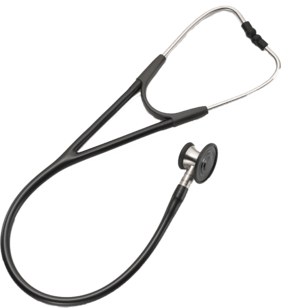Neil's story
0

0

Neil's story
Part of the floor of his mouth was removed, he has an inability to extend his tongue further then his lips, numbness on the tip and underneath of his tongue. Yet he is most importantly alive, and he can eat and his speech is almost back to normal.
“In short, Mr Whitley has done a superb job.”
Although he has been cleared of cancer, there is still a tinge of possibility casting an ever-so slightly grey cloud above the likes of anyone who is, as they say, ‘”cancer free”.
“All my words about cancer are caveated with the words ‘so far as’ although I am clear of cancer at present, one can never be sure it will not recur.”
The first couple of surgeries in December 2014 and June 2015 was thought to have destroyed the cancer cells in this mouth, yet at his six-month check-up in 2016, a tumour had developed.
Neil Beaumont, 66, had oral cancer. Mr Whitley diagnosed him with the diagnosis pT1 No Mo moderate to poorly differentiated squamous cell carcinoma in a background of severe dysplasia of floor mouth.
Intimidating, if not another language to us who have never heard it before.
He was first diagnosed in 2014 after seeing abnormal cells on the floor of his mouth. At the same time blood tests showed he was a diabetic and he now injects insulin five times a day. Thus starting his two-year long fight to abolish his cancer.
His cancer was thankfully small and it had not spread to the lymph node or elsewhere in his body. There was also no trouble with his teeth, which can happen as a result of cancer or in order for a surgeon to extract it.
“UCLH is world class, the Head and Neck cancer team of surgeons and all the back up team are experts, always kind and helpful.”
Safe to say he felt he as if was in capable hands. The vast pre-op team were there to reassure and keep him going, having to take his diabetes into account also.
“The lead up to the operation and the anxiety of finding out how much of my mouth/face would be removed or affected was very stressful.
“Having a superb expert such as Mr Whitley was of immense reassurance and encouragement for me.”
His feeling throughout the first year was one of dread and the discovery of the tumour in 2016 was worrying, yet he is positive and continues check-ups every six weeks.
“Looking ahead I am fairly positive, but cautious because I never suffered from my cancer, it was caught early.
“Looking ahead I am fairly positive, but cautious because I never suffered from my cancer, it was caught early.
“On the downside, I have lost too many of my family and friends (nearly all younger than I) because of cancer. Few have had total recovery.”
It has not impacted upon his retired career, only slowing his research projects and although his mother is in poor health, his family and friends remain supportive.
Despite offers of accompaniment he attends appointments alone as to not worry his relatives and friends.
"Another blow” is that Neil is now unable to drink alcohol or even have a cigar, as the floor of the mouth is a particularly vulnerable area. Many foods he loves are off limits too as a result of his diabetes.
“I restrict my social outings, I can resist anything except temptation! Oscar Wilde I believe.”
Upon reflection, it has strengthened his Christian faith and his empathy towards the suffering and anxieties of those more ill than himself.
When he looks at those with parts of their face or larynxes that have been removed, he appreciates his privilege in what he sees as the best care.
Although, he said: “Combined with my insulin dependence, I have to be realistic about my future chances.”
Invevitably caution remains, as one would expect having had cancer, but despite everything he takes his experience as a form of growth. There is nothing more that can be done but take the experience and make it as positive as humanly possible.
Back to home

“Bad luck or what?” Neil said.
He graduated with a BA in Modern History and Politics in 1971, then worked as a Chartered Surveyor in the West End of London and even retired early in 2000.
Mr Whitley removed Neil’s tumour and the surrounding cancerous tissue in September 9 2016 at University College London. There was no need for reconstructive surgery or radiotherapy, so he considers himself “lucky” compared to some.
Then came a biopsy, ultrasound, x-ray, PT scan, MRI scan and dental assessments.
“So much of your time is taken up with tests and you still are not sure of how much cancer. Whether it has spread, what your survival chances are, etc… Scary!”
To find out more about the anonymous story, click on the stethoscope
Simon the surgeon